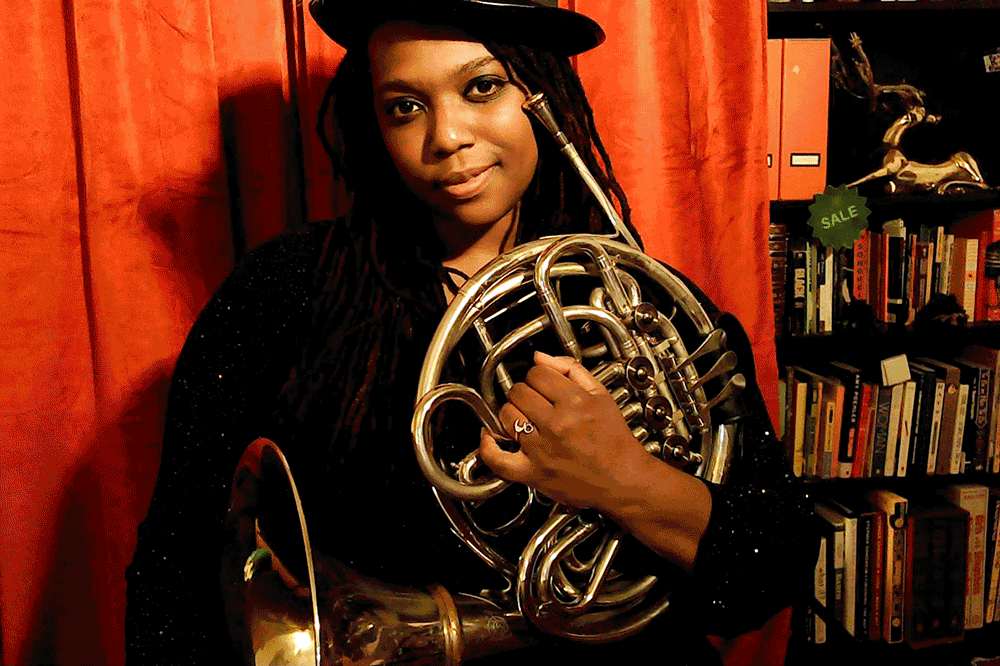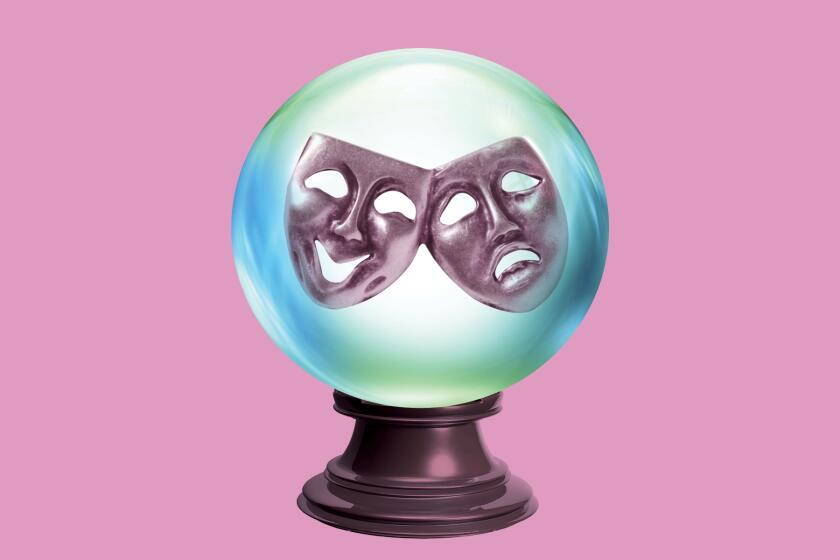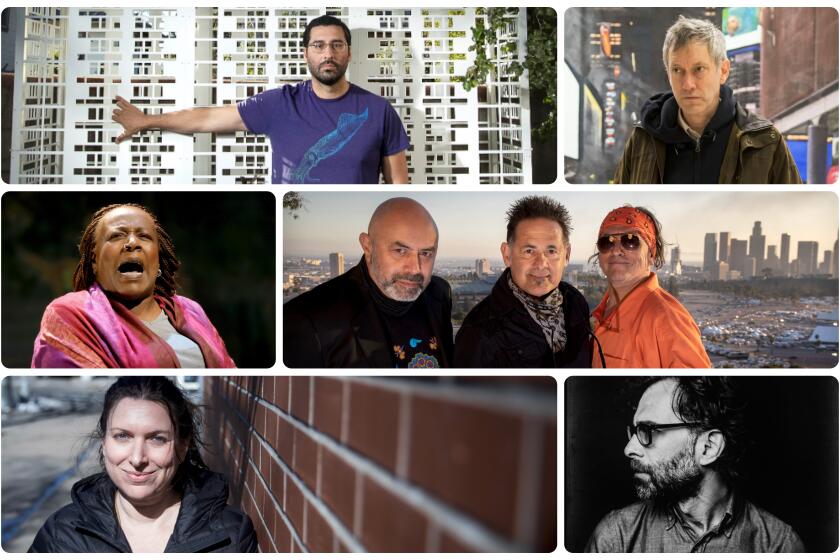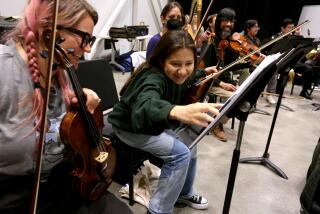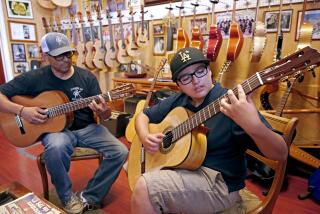Mozart for Munchkins concerts revive a sense of purpose. Just ask this French horn player
French horn player Peter DelGrosso kept the kids -- and himself -- entertained with Mozart for Munchkins during the pandemic. He’s one of 11 classical musicians from both coasts who share their stories of struggle, survival and hope.
- Share via
Young children are what salvaged the Year of the Pandemic for New York City-based French horn player Peter DelGrosso. As the creative director of Mozart for Munchkins, DelGrosso has staged live performances in Central Park, at times using an adorable little French horn that’s a hit with the kids.
Families, desperate for semi-educational diversion, flocked to the shows, and during late summer and early fall, DelGrosso says he was playing upward of 15 concerts per week.
“Those days were beautiful,” he says. “I was just waking up and doing park concerts in the morning. It was a sweet job.”
Violinist Melissa Tong landed her dream job playing a Broadway musical. Then the pandemic became the ultimate showstopper. She’s one of 11 classical musicians from both coasts who share their stories of struggle, survival and hope.
During the pandemic, indoor Mozart for Munchkins gigs have given way to outdoor gigs, with masked families setting up blankets at least six feet away from other guests. Parents pay about $35 per ticket, and the wee ones are free. DelGrosso was able to hire some musicians who were happy for the work, and he got to do some of his own arranging. He says he began to feel inspired and hopeful again.
I was just waking up and doing park concerts in the morning. It was a sweet job.
— Peter DelGrosso, French horn
Playing classical music for children is not easy, mind you.
“It can get out of hand really quickly,” DelGrosso says with a laugh, explaining that performers need to employ tactics that involve more than just listening.
Teaching is a passion for DelGrosso, who has a bachelor’s degree in music education and moved to New York to get his master’s in music performance. Through it all, he has taught private classes, which he says became a godsend during the pandemic.
The only problem? He was sharing an apartment with a roommate who was also a musician teaching remotely.
“We were tolerating each other’s playing, but that became very hard,” DelGrosso says, adding that he just recently moved into a studio apartment, which he considers a certain marker of success considering the circumstances.
Until the pandemic he found working as a freelance musician in New York to be quite rewarding in terms of the depth and breadth of performing and recording opportunities. He established his own French horn quartet, called the Metropolitan Horn Authority, and he is a member of Music Under New York, which allows participants to play legally in the city’s subways.
His group did some busking right before the shutdown order in March, and he said they were met with mixed reviews. Some people wondered what on earth they were doing there when a deadly virus was rumored to be circulating, and others were just grateful for the distraction.
As the one-year anniversary of the COVID-19 pandemic arrives, we want to hear from Angelenos in the theater industry about what life has been like since.
He was just trying to play as much music as he could until that was no longer possible. During the first three months of the pandemic he stayed at home with his parents in Virginia. He intended it to be a short visit, but once he was there it seemed that there was no point in returning for a while.
“In that moment, everything had just stopped,” he says.
The outdoor concerts for kids brought him back, and once he began performing live again he regained his sense of purpose. Musicians and artists, he says, have their identities wrapped up in their professions in ways that can be more pronounced than in other jobs.
“There were things we took for granted as musicians until they were gone,” he says. “The vibrations, and just being in the room together.”
The World Health Organization announced the coronavirus outbreak had become a pandemic on March 11, 2020. Since then, the virus has seemingly touched all aspects of life in Southern California and beyond. The Times looks back on a full year of life in a pandemic.
The many online videos of socially distant concerts without the nuanced matching of intonation and articulation, and the out-of-sync Zoom duets, did not make the grade, he says.
DelGrosso recently played his first live orchestra gig since the pandemic started. It was a recording session in a church with the Brooklyn Chamber Orchestra and a lot of fun and fast Rossini overtures.
When you play the last note, you don’t just drop your instruments, DelGrosso says. You let that note resonate with the human energy of the players in the room.
“We played the last note and I got emotional,” he says. “I was able to get a reaffirmation of life from one note.”
Daniel Fish, Culture Clash, Dael Orlandersmith, Richard Maxwell, Annie Dorsen and Lars Jan reveal much loss — but also see a way forward.
More to Read
The biggest entertainment stories
Get our big stories about Hollywood, film, television, music, arts, culture and more right in your inbox as soon as they publish.
You may occasionally receive promotional content from the Los Angeles Times.
